In a functioning democracy, political dissidents are exercising a regular and completely legal part of freedom of speech. This page focuses on the dissidents who risk their lives battling the most undemocratic dictatorships in the world.
dissidents
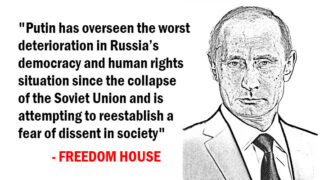 Outrage After Russian Director And Playwright Detained (5/11/2023) - Berkovich and Petriychuk where charged with justifying terrorism over a play about Russian women marrying…
Outrage After Russian Director And Playwright Detained (5/11/2023) - Berkovich and Petriychuk where charged with justifying terrorism over a play about Russian women marrying…  Belarus Journalist Taken From Plane Sentenced To 8 years (5/7/2023) - The arrest of opposition blogger Raman Pratasevich shocked the world when Belarus forced his Ryanair…
Belarus Journalist Taken From Plane Sentenced To 8 years (5/7/2023) - The arrest of opposition blogger Raman Pratasevich shocked the world when Belarus forced his Ryanair… 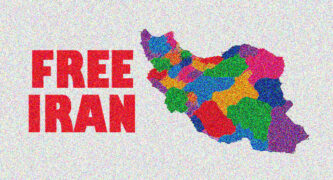 Iranian Secret Committee ‘Punished Celebrities Over Dissent’ (4/28/2023) - Iran's Secret committee sent a list of 141 to the economy ministry, including celebrities, raising…
Iranian Secret Committee ‘Punished Celebrities Over Dissent’ (4/28/2023) - Iran's Secret committee sent a list of 141 to the economy ministry, including celebrities, raising… 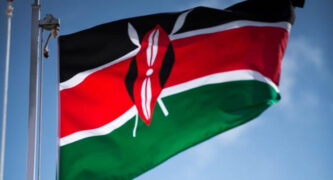 Coercive Bargaining In Kenya’s Anti-Government Protests (4/5/2023) - Kenya's anti-government protests have been characterized by both peaceful demonstrations and violent clashes with police.
Coercive Bargaining In Kenya’s Anti-Government Protests (4/5/2023) - Kenya's anti-government protests have been characterized by both peaceful demonstrations and violent clashes with police. 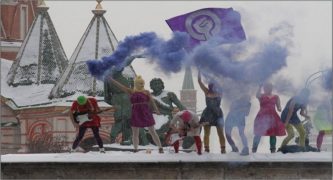 Pussy Riot Will Receive This Year’s Woody Guthrie Prize (3/30/2023) - Russian performance collective Pussy Riot will receive this year's Woody Guthrie prize honoring art for…
Pussy Riot Will Receive This Year’s Woody Guthrie Prize (3/30/2023) - Russian performance collective Pussy Riot will receive this year's Woody Guthrie prize honoring art for… 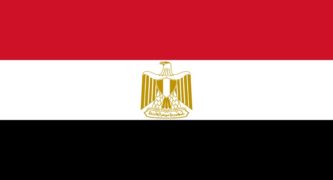 Exile Or Prison: Egypt’s Offer To Critics Abroad (3/30/2023) - Egyptian authorities are refusing to provide identity documents, including passports, birth certificates, and national IDs…
Exile Or Prison: Egypt’s Offer To Critics Abroad (3/30/2023) - Egyptian authorities are refusing to provide identity documents, including passports, birth certificates, and national IDs… journalists
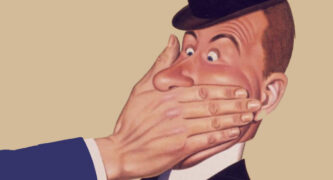 Playing the Ref at Nextdoor (12/15/2024) - Experience has taught me that the editors at Democracy Chronicles probably won't call this article…
Playing the Ref at Nextdoor (12/15/2024) - Experience has taught me that the editors at Democracy Chronicles probably won't call this article… 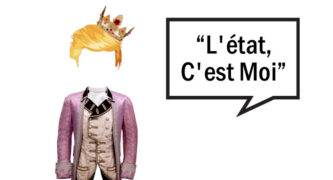 How The Supreme Court Could Shape The 2024 Election (11/4/2024) - Dahlia Lithwick has covered the Supreme Court since the landmark Bush v. Gore decision in 2000.
How The Supreme Court Could Shape The 2024 Election (11/4/2024) - Dahlia Lithwick has covered the Supreme Court since the landmark Bush v. Gore decision in 2000. 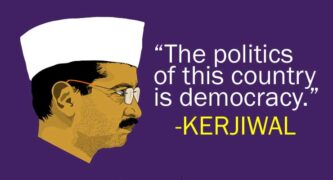 Making peace visible: the state of democracy in India (12/22/2023) - Increasing government suppression of dissent in India imperils democracy, as critical journalists face escalating risks…
Making peace visible: the state of democracy in India (12/22/2023) - Increasing government suppression of dissent in India imperils democracy, as critical journalists face escalating risks…  PODCAST: When Populism And Democracy Collide (11/19/2023) - How can liberal democracies defend themselves against political challenges without undermining their core values?
PODCAST: When Populism And Democracy Collide (11/19/2023) - How can liberal democracies defend themselves against political challenges without undermining their core values? 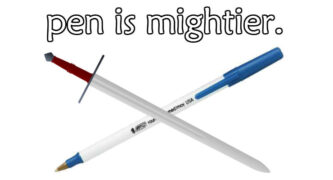 I Hereby Censure the Censure (10/2/2023) - It’s time that we censure the whole idea of censure. It’s consuming the precious time…
I Hereby Censure the Censure (10/2/2023) - It’s time that we censure the whole idea of censure. It’s consuming the precious time…  Democracy, Education and the Trump Voter (9/1/2023) - For those concerned and willing to move beyond expressions of frustration and contempt for Trump…
Democracy, Education and the Trump Voter (9/1/2023) - For those concerned and willing to move beyond expressions of frustration and contempt for Trump… tech dissidents
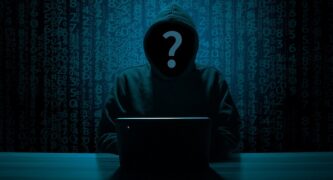 Hacktivists Are Piercing Russia’s Propaganda Bubble (3/6/2022) - Hackers have decided to wage war on Russia, ensuring Russians see photos of Vladimir Putin's…
Hacktivists Are Piercing Russia’s Propaganda Bubble (3/6/2022) - Hackers have decided to wage war on Russia, ensuring Russians see photos of Vladimir Putin's… 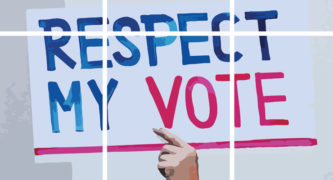 He Was the ‘Perfect Villain’ for Voting Conspiracists (8/25/2021) - Eric Coomer worked for Dominion Voting Systems. He also posted anti-Trump messages on Facebook. What…
He Was the ‘Perfect Villain’ for Voting Conspiracists (8/25/2021) - Eric Coomer worked for Dominion Voting Systems. He also posted anti-Trump messages on Facebook. What… 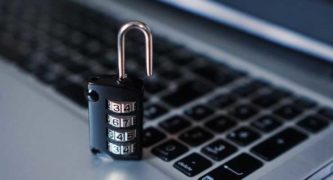 Redistricting App Helps You Comply with the VRA (7/17/2021) - In the last decade, Dave's Redistricting App (DRA) has grown in popularity among groups looking…
Redistricting App Helps You Comply with the VRA (7/17/2021) - In the last decade, Dave's Redistricting App (DRA) has grown in popularity among groups looking… 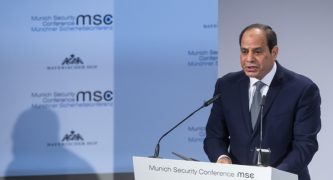 Egypt Targets TikTokers And Digital Dissidents (6/28/2021) - There is a contradiction between Egypt's rapid development of the digital economy and state control…
Egypt Targets TikTokers And Digital Dissidents (6/28/2021) - There is a contradiction between Egypt's rapid development of the digital economy and state control… 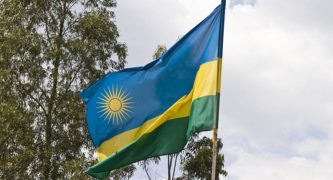 Rwanda Sees More Arrests and Prosecutions over YouTube Posts (3/31/2021) - Over the last year, Rwandan authorities arrested or prosecuted at least eight people who used…
Rwanda Sees More Arrests and Prosecutions over YouTube Posts (3/31/2021) - Over the last year, Rwandan authorities arrested or prosecuted at least eight people who used… 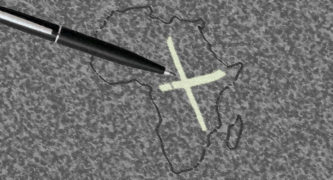 Dictatorships Play Whack-A-Mole With African Digital Rights (3/31/2021) - African dictatorships are playing whack-a-mole with African digital rights, inventing restrictive policies to suppress freedom…
Dictatorships Play Whack-A-Mole With African Digital Rights (3/31/2021) - African dictatorships are playing whack-a-mole with African digital rights, inventing restrictive policies to suppress freedom… dissidents and democracy people
ai weiwei
Ai Weiwei is a contemporary political artist active in sculpture, installation, architecture, music, photography, film, and political critic frequently seen clashing with the dictatorship. Born in Beijing, he is openly critical of the dictatorship’s dangerous stance on democracy and he has worked on many popular investigations into government corruption despite his constant repression.
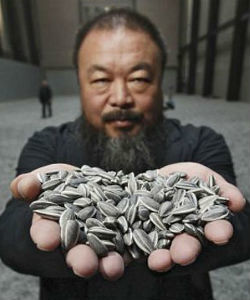
alexei navalny
Investigations of corruption on his blog, vocal criticism of the dictatorship, and unconventional grassroots organizing activities have made Navalny a national figure in Russia. He organized large-scale demonstrations promoting democracy against dictator Vladimir Putin and Putin’s political allies. He has also run for office on an anti-corruption platform including Moscow Mayor.
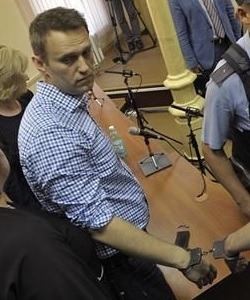
che guangcheng
Civil rights activist worked on human rights in rural areas of China. Blind from an early age and self-taught in the law, he is frequently described as a ‘barefoot lawyer’. He advocates for women’s rights, land rights, and welfare of the poor. He is popularly known for exposing government abuses in official family-planning practices, often involving violence and forced abortions.
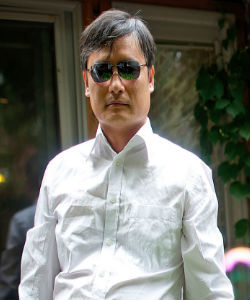
malala yousafzai
Malala was 11 years old when she began blogging about life under Taliban rule in northwestern Pakistan and launched her campaign to support education for the poor. At 15, she survived a brutal assassination attempt and proceeded to return to resume her work for women’s education as a solution in Pakistan and beyond, becoming the youngest Nobel Prize laureate ever.
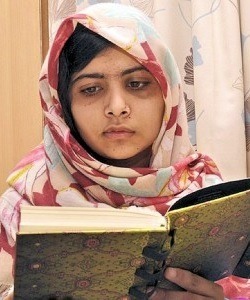
Dictatorships use many discriminatory policies to repress their population and dissidents face the worst of their fury. Political repression such as human rights violations, surveillance abuse, police brutality, imprisonment, involuntary settlement, stripping of citizen’s rights, and violent action or terror such as murder, summary executions, torture, forced disappearance and other extrajudicial punishment. Also visit our articles on international corruption.
Political Dissidents and Their Movements
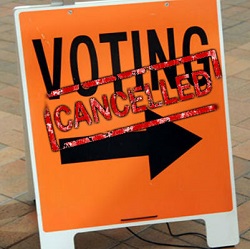 When dissidents unite for a common cause they often become a dissident movement. All modern dictatorships are opposed by established dissident movements that exist both inside and outside their borders. Many dissident movements find shelter and support for their activities inside the democratic world. Also, take a look at our articles on what we call Technology Dissidents including web-minded individuals like Lawrence Lessig, Eric Snowden, Julian Assange, and Bradley Manning.
When dissidents unite for a common cause they often become a dissident movement. All modern dictatorships are opposed by established dissident movements that exist both inside and outside their borders. Many dissident movements find shelter and support for their activities inside the democratic world. Also, take a look at our articles on what we call Technology Dissidents including web-minded individuals like Lawrence Lessig, Eric Snowden, Julian Assange, and Bradley Manning.
The non-profit Freedom House does a good deal of work assisting these types of dissidents but other charities involved in this fight include Amnesty International and the Worldwide Movement for Democracy. Movements.org is perhaps the major activist group focused solely on helping dissidents. A list of the worst of the worst dictatorships is produced every year by the democracy and civil rights group Freedom House. Take a look at “Worst of the Worst 2012: The World’s Most Repressive Societies“. Here is a quick summary:
More than 1.6 billion people—23 percent of the world’s population—have no say in how they are governed and face severe consequences if they try to exercise their most basic rights, such as expressing their views, assembling peacefully, and organizing independently of the state. Citizens who dare to assert their rights in these repressive countries typically suffer harassment and imprisonment, and often are subjected to physical or psychological abuse. In these countries, state control over public life is pervasive, and individuals have little if any recourse to justice for crimes the state commits against them.
george orwell
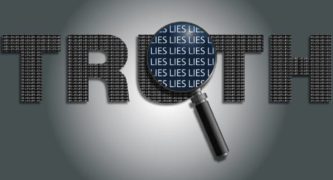 Group Think In The Stop The Steal Movement - I have been thinking about how statistics show that there are 14 million Americans who…
Group Think In The Stop The Steal Movement - I have been thinking about how statistics show that there are 14 million Americans who… 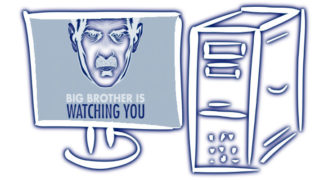 In Vietnam, Big Brother Is Watching Everyone - Vietnam should postpone the application of the Law on Cyber Security and revise it to…
In Vietnam, Big Brother Is Watching Everyone - Vietnam should postpone the application of the Law on Cyber Security and revise it to…  In China, Big Brother Moves Into Uighur Homes - Local government workers in China have been deployed to ethnic minorities’ homes and other occasions…
In China, Big Brother Moves Into Uighur Homes - Local government workers in China have been deployed to ethnic minorities’ homes and other occasions…  The Democracy Fighters of the Abraham Lincoln Brigade - I finally understand how, when the Spanish Civil War ignited, a group of young Americans—…
The Democracy Fighters of the Abraham Lincoln Brigade - I finally understand how, when the Spanish Civil War ignited, a group of young Americans—… 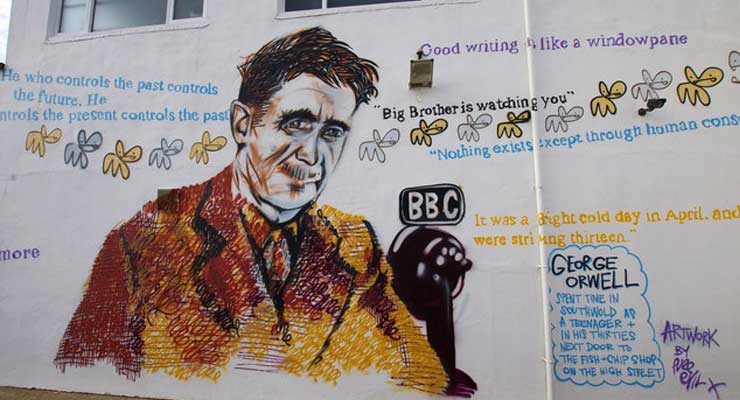 The Old World Dreamers and the New Activists - The existence of new world culture with its complex power alloy of politicians, capitalism and…
The Old World Dreamers and the New Activists - The existence of new world culture with its complex power alloy of politicians, capitalism and… 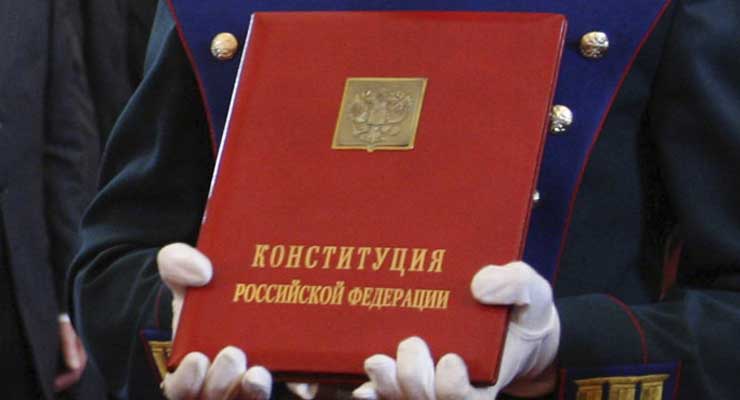 Russian Big Brother Law Draws Protest in Moscow - Politicians in Russia are facing heavy criticism from protesters who have taken to the streets…
Russian Big Brother Law Draws Protest in Moscow - Politicians in Russia are facing heavy criticism from protesters who have taken to the streets… thomas paine
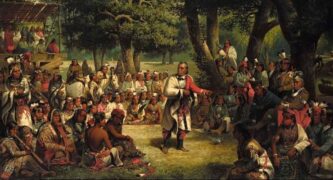 How New World Peoples Inspired the Age of Democracy - What is largely underappreciated is how European exposure to the novel concepts of governance helped…
How New World Peoples Inspired the Age of Democracy - What is largely underappreciated is how European exposure to the novel concepts of governance helped… 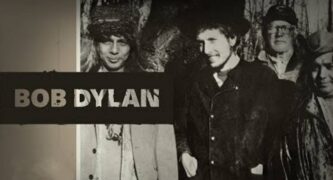 Thomas Paine and Bob Dylan - I commend Bob Dylan for grasping Thomas Paine’s essence, and for putting it to use.…
Thomas Paine and Bob Dylan - I commend Bob Dylan for grasping Thomas Paine’s essence, and for putting it to use.… 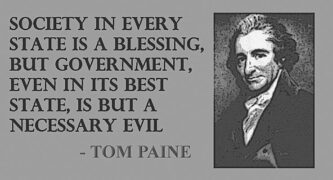 Examining Government As A “Necessary Evil” - Thomas Paine defines government as separate from society, and indeed if society functioned perfectly there…
Examining Government As A “Necessary Evil” - Thomas Paine defines government as separate from society, and indeed if society functioned perfectly there… 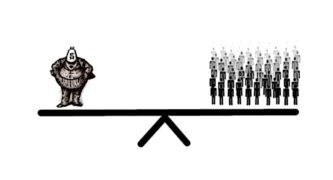 Thomas Paine Was Not A Libertarian - Libertarianism is the feeble step-child of anarchism: espousing that the individual is everything, the collective…
Thomas Paine Was Not A Libertarian - Libertarianism is the feeble step-child of anarchism: espousing that the individual is everything, the collective… 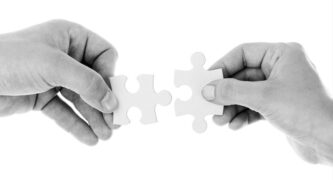 Thomas Paine and the Origins of Modern Democracy, Part II - Central to Paine’s political theories are his ideology of first principles. The foundation of these…
Thomas Paine and the Origins of Modern Democracy, Part II - Central to Paine’s political theories are his ideology of first principles. The foundation of these… 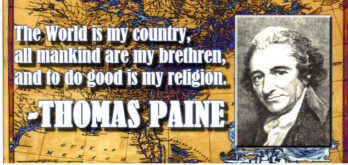 Paine and the Origins of Modern Democracy, Part I - Thomas Paine is the founder of modern democracy. He crafted the democratic movement in three…
Paine and the Origins of Modern Democracy, Part I - Thomas Paine is the founder of modern democracy. He crafted the democratic movement in three… martin luther king jr.
 ‘Urgent and essential:’ How John Lewis’s death has renewed calls to protect voting rights - ‘Urgent and essential’ is how the bill that would restore a crucial provision of the…
‘Urgent and essential:’ How John Lewis’s death has renewed calls to protect voting rights - ‘Urgent and essential’ is how the bill that would restore a crucial provision of the… 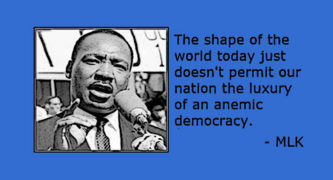 Growing Up Learning Importance of Registering People to Vote - In an excerpt from her unfinished, unpublished memoir, Ruth Carter-Lynch discusses the time of Martin…
Growing Up Learning Importance of Registering People to Vote - In an excerpt from her unfinished, unpublished memoir, Ruth Carter-Lynch discusses the time of Martin… 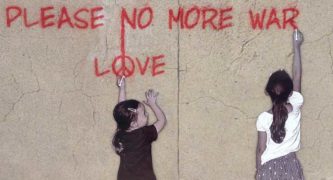 It Will Take More Than Socialism and Democracy to Save the World - Imagine having democratic and ecological socialism on an international level based on a system and…
It Will Take More Than Socialism and Democracy to Save the World - Imagine having democratic and ecological socialism on an international level based on a system and… 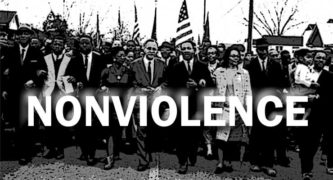 Kansas City to Rename Street to Honor Martin Luther King Jr. - Kansas City one of nation's largest cities voted on Thursday to rename a 10-mile stretch…
Kansas City to Rename Street to Honor Martin Luther King Jr. - Kansas City one of nation's largest cities voted on Thursday to rename a 10-mile stretch… 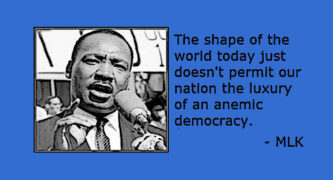 Who Was Martin Luther King Jr? - Martin Luther King Jr. who embodied the civil rights movement, was assassinated more than 50…
Who Was Martin Luther King Jr? - Martin Luther King Jr. who embodied the civil rights movement, was assassinated more than 50…  How Religion Wrecks Democracy and Our Justice System - Religion is the foundation of our legal, political and electoral system still. Would you choose to…
How Religion Wrecks Democracy and Our Justice System - Religion is the foundation of our legal, political and electoral system still. Would you choose to…